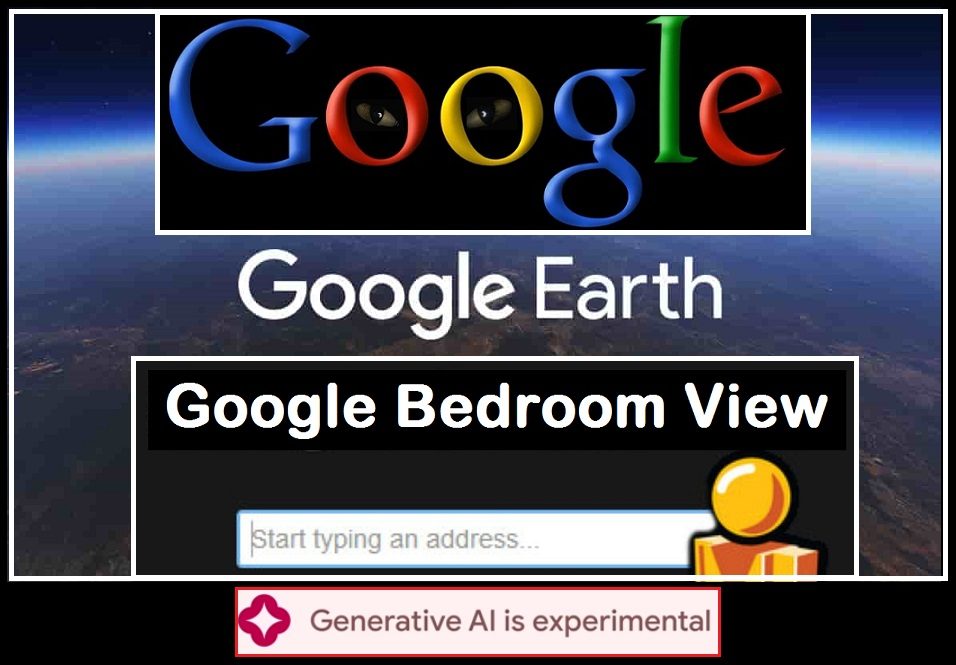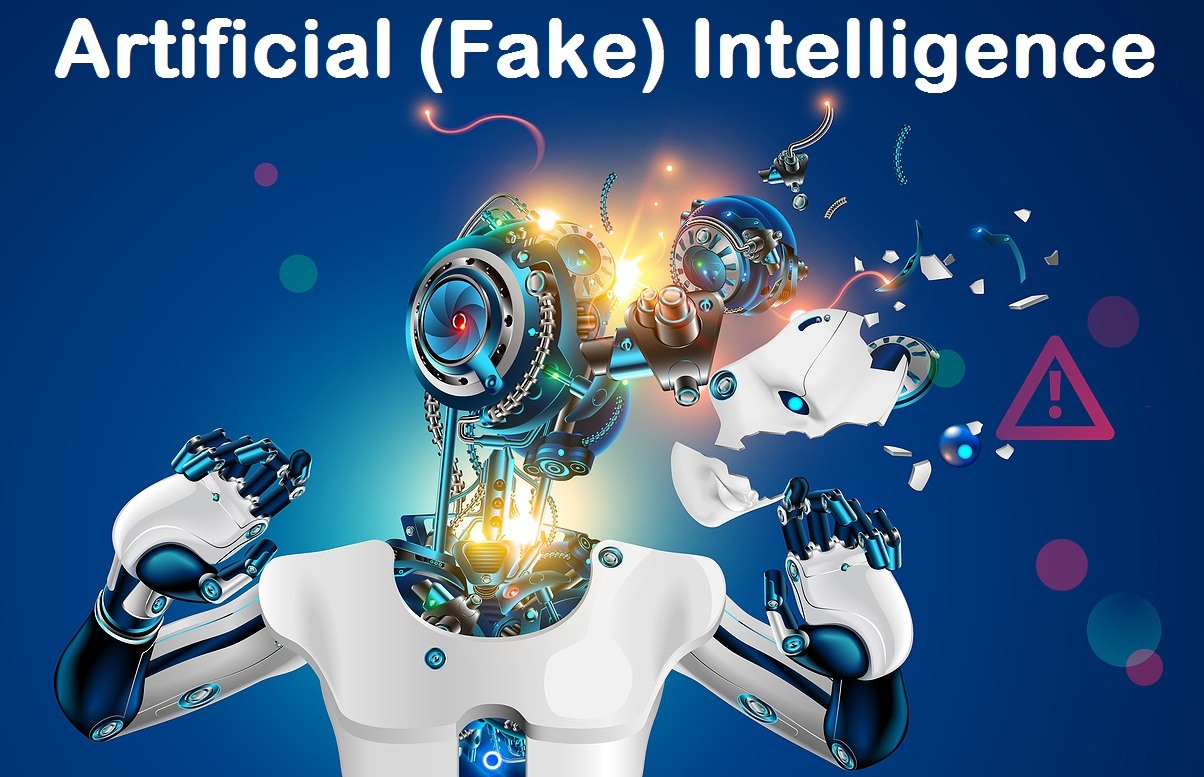by Brian Shilhavy, Health Impact News:

Google announced its new plans for AI this week at their annual I/O developer conference, and to say that not everyone in the Tech Industry was thrilled by their plans to integrate Generative AI into their search engine, would be an understatement.
Emily Dreibelbis, writing for PC Magazine, published one of the more apocalyptic articles warning that Google could basically destroy most websites on the Internet.
TRUTH LIVES on at https://sgtreport.tv/
Why Google’s New ChatGPT-Style Search Could Kill the Websites That Feed It
Google just previewed its chatbot-style vision for the future of web search results. But if it mines publications’ hard work without compensating them, many may not survive this shift.
The typical PCMag product reviewer’s home is a web of wires and blinking LEDs from laptops, smartwatches, and scores of other gadgets. Analysts spend weeks performing hands-on testing to produce in-depth buying guides that help readers get the most from technology.
But what if that wealth of content is reduced to grist for a bigger mill? Google’s new AI search experience pushes links to articles below the digital fold, summarizing the response to a search query up top as a conversational, ChatGPT-style paragraph. Content in the answer, a mini-article in itself, can theoretically come from PCMag and a host of other publications.
To start, this AI experience will only apply to searches for which Google algorithms can produce helpful results, The Verge reports. But it’s unclear how many searches that will cover, and whether Google will compensate or cite its sources. The company has said only that it’s “committed to continue sending valuable traffic to sites across the web.”
Writers watching a live demo of the new experience at Google’s I/O conference found it chilling. “Did Google receive that e-bike and set it up?” asks Angela Moscaritolo, PCMag’s health and fitness expert. She reviewed the Aventon Aventure Ebike, which the demo suggested for commuters as “good for hill climbing.”
“Did it take it on the beach and all over town to determine if it’s actually good for hill climbing? If you didn’t verify the claim your AI is presenting, then you need to cite that source,” she says.
With what we’ve seen from Google thus far, users can’t truly know if the information came from a PCMag article, customer reviews, marketing claims on a manufacturer’s product page—or some undistinguished mish-mosh of all that. The even more chilling thing for society as a whole? If Google goes down this path, that source material could end up less likely to be from trusted publications and sources, because the revenue hit they take means they may not be around.
C’Mon, Google: Don’t Trigger a Web Media Meltdown!
The backlash has already begun. AI—and its tendency to plagiarize—is at the forefront of the writers’ strike in Hollywood. And multiple visual artists have filed lawsuits against AI image-generator platforms like DALL-E and Midjourney for using their work without compensation. (Full article.)
Maggie Harrison, writing for Futurism, issued similar warnings for the future of independent journalism due to Google’s plan for Generative AI, noting that Google still owns 91% of all Internet searches.
Google Unveils Plan to Demolish the Journalism Industry Using AI
This could change everything.
Remember back in 2018, when Google removed “don’t be evil” from its code of conduct?
It’s been living up to that removal lately. At its annual I/O in San Francisco this week, the search giant finally lifted the lid on its vision for AI-integrated search — and that vision, apparently, involves cutting digital publishers off at the knees.
Google’s new AI-powered search interface, dubbed “Search Generative Experience,” or SGE for short, involves a feature called “AI Snapshot.” Basically, it’s an enormous top-of-the-page summarization feature. Ask, for example, “why is sourdough bread still so popular?” — one of the examples that Google used in their presentation — and, before you get to the blue links that we’re all familiar with, Google will provide you with a large language model (LLM) -generated summary. Or, we guess, snapshot.
“Google’s normal search results load almost immediately,” The Verge’s David Pierce explains. “Above them, a rectangular orange section pulses and glows and shows the phrase ‘Generative AI is experimental.’ A few seconds later, the glowing is replaced by an AI-generated summary: a few paragraphs detailing how good sourdough tastes, the upsides of its prebiotic abilities, and more.”
At first glance, the change might seem relatively benign. Often, all folks surfing the web want is a quick-hit summary or snippet of something anyway.
But it’s not unfair to say that Google, which in April, according to data from SimilarWeb, hosted roughly 91 percent of all search traffic, is somewhat synonymous with, well, the internet. And the internet isn’t just some ethereal, predetermined thing, as natural water or air. The internet is a marketplace, and Google is its kingmaker.
As such, the demo raises an extremely important question for the future of the already-ravaged journalism industry: if Google’s AI is going to mulch up original work and provide a distilled version of it to users at scale, without ever connecting them to the original work, how will publishers continue to monetize their work?
“Google has unveiled its vision for how it will incorporate AI into search,” tweeted The Verge’s James Vincent. “The quick answer: it’s going to gobble up the open web and then summarize/rewrite/regurgitate it (pick the adjective that reflects your level of disquiet) in a shiny Google UI.” (Full Article.)
Real vs. Imagined Dangers of AI

This is one of the REAL dangers of AI, the fact that the largest technology companies that control the Internet could very easily drive everyone else out of business and thereby control all the content on the Internet.
And in fact, that trend has already started in the technology sector, as year-to-date there have already been 193,860 employees laid off in the technology sector, with many tech businesses failing, as well as some of their top banks also failing, like Silicon Valley Bank, that funded these companies.
But before I summarize the real dangers that the new AI software presents to society, let me again debunk all the #AIhype that is helping to feed this frenzy, which is that AI will soon be more intelligent than humans and replace us, since almost nobody else in the Alternative Media is exposing this.
Every day I still see these science fiction articles in the Alternative Media about how robots are going to replace us and take over the world.
Earlier this week we featured a video produced by The Discovery Institute and their “Science Uprising” series that featured Oxford professor of mathematics John Lennox and Baylor University computer engineer Robert J. Marks, explaining how AI can never replace humans. It is a short 10-minute video well worth watching.
Read More @ HealthImpactNews.com




